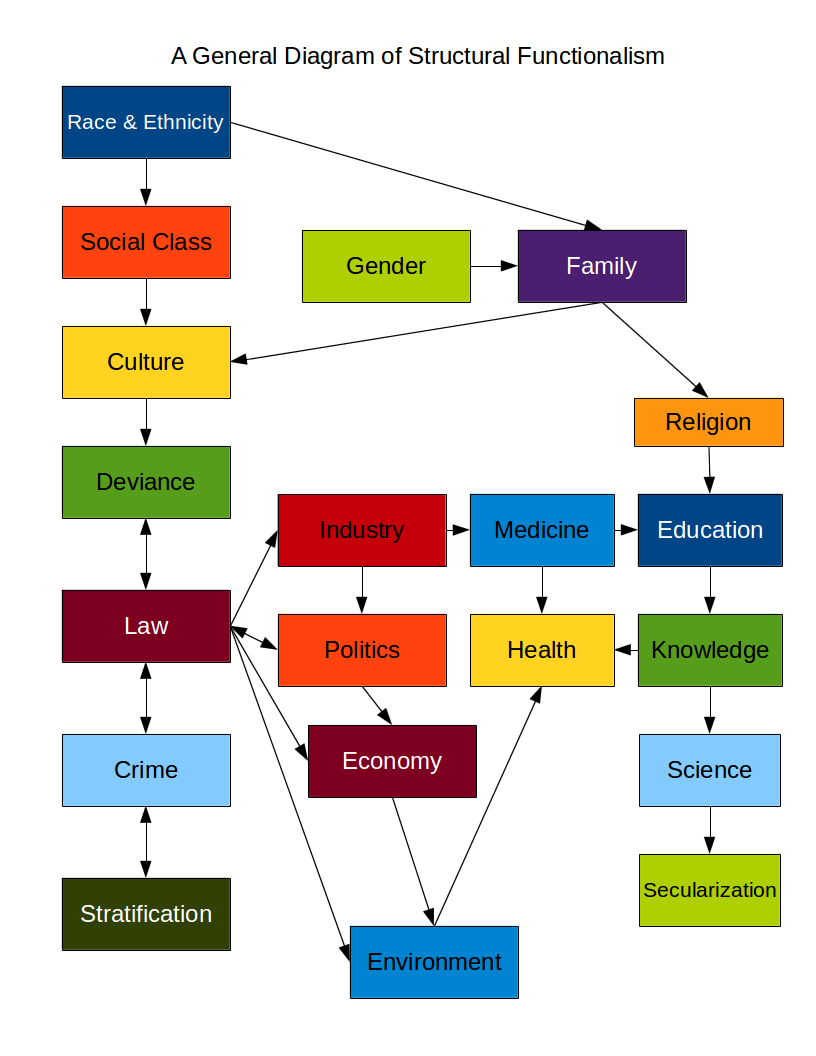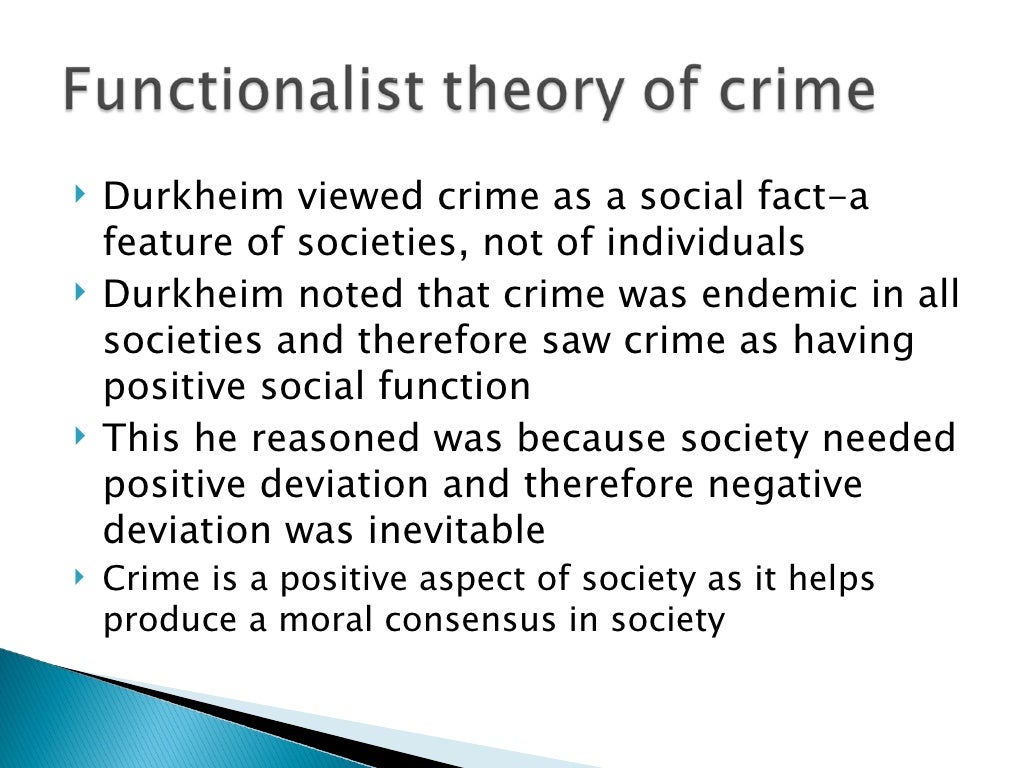Have you ever wondered how a society functions like a well-oiled machine, with different parts moving in harmony to maintain its equilibrium? This intricate interplay of social structures and their contributions to the overall well-being of a society is the essence of functionalist theory, a major theoretical perspective in sociology.

Image: www.writework.com
Functionalist theory, also known as structural functionalism, views society as a complex system composed of interconnected parts, each playing a crucial role in maintaining social stability. This theory emphasizes the importance of social institutions like family, education, religion, and the economy in shaping individual behavior and maintaining social order. Understanding functionalist theory is vital for grasping the complexities of social life and the forces that drive societal change.
Origins and Key Figures of Functionalist Theory
A Historical Perspective
Functionalist theory emerged in the late 19th and early 20th centuries, drawing inspiration from the works of Auguste Comte, Herbert Spencer, and Émile Durkheim. Comte, considered the father of sociology, emphasized the importance of social order and the need to study society scientifically. Spencer, drawing parallels between society and the human body, proposed that each part of society has a specific function that contributes to the overall well-being of the organism. Durkheim, a key figure in the development of functionalism, contributed significantly by examining the role of social solidarity and its impact on social stability.
Talcott Parsons and the Development of Functionalist Theory
Talcott Parsons, an eminent sociologist of the mid-20th century, is widely credited for formalizing functionalist theory. He argued that society operates like a living organism, with different institutions working together to meet the basic needs of the system. Parsons identified four functional prerequisites for any social system: adaptation, goal attainment, integration, and latency. Adaptation refers to the ability of a society to adjust to its environment, while goal attainment involves setting goals and mobilizing resources to achieve them. Integration focuses on maintaining social cohesion and a sense of shared values, and latency ensures the transmission of cultural norms and values to future generations.

Image: www.slideshare.net
Core Concepts of Functionalist Theory
Social Structures and Functions
Functionalist theory highlights the significance of social structures, which are established patterns of social behavior that govern how individuals interact within a society. These structures include institutions like the family, education system, government, religion, and the economy. Each structure has a specific function, contributing to the overall stability and functioning of society. For example, the family serves as a primary socialization agent, transmitting cultural norms and values to children. The education system equips individuals with knowledge and skills needed for economic participation. The government establishes laws and regulations to maintain social order, while religion provides moral guidance and a sense of belonging.
Social Equilibrium and Harmony
Functionalists believe that society strives for a state of social equilibrium, a condition where all parts of the system are working together in harmony to maintain stability. When social institutions fulfill their functions effectively, social equilibrium is maintained. However, if there is a disruption in any of these functions, it can lead to social problems and instability.
Manifest and Latent Functions
Functionalists differentiate between manifest and latent functions. Manifest functions are the intended and recognized consequences of a social structure or action. For example, the manifest function of education is to provide knowledge and skills.
Dysfunctions in Society
While functionalist theory emphasizes the harmonious functioning of society, it also acknowledges the possibility of dysfunctions. Dysfunctions are unintended and negative consequences of social structures or actions that disrupt social equilibrium. For example, crime, poverty, and inequality can be viewed as dysfunctions that threaten social order. These dysfunctions can be caused by various factors, such as social inequalities, cultural conflicts, or economic instability.
Real-World Applications of Functionalist Theory
Understanding Social Phenomena
Functionalist theory provides a framework for understanding various social phenomena, including:
- Social Stratification: The theory explains social inequality as a necessary function for the smooth operation of society. Individuals are assigned different roles based on their abilities and contributions.
- Education: Functionalists see education as a vital institution that transmits knowledge and skills to the next generation, preparing them for their roles in society.
- Deviance: Functionalist theory acknowledges that deviance can have both beneficial and harmful consequences. While deviance can disrupt social order, it can also contribute to social change by challenging existing norms and values.
- Social Change: Functionalist theory suggests that social change occurs gradually as institutions adapt to new challenges and demands. Social change is often driven by a process of functional differentiation, where new roles, institutions, or structures emerge to address emerging needs.
Critiques of Functionalist Theory
Despite its significant contributions to understanding society, functionalist theory has also faced criticism. Critics argue that the theory:
<ul>
<li><strong>Overemphasizes Order and Stability:</strong> Functionalism focuses heavily on social stability and ignores the role of power, conflict, and inequality in shaping society. </li>
<li><strong>Ignores the Role of Conflict:</strong> Functionalists tend to overlook the role of power struggles and social conflict, which can be crucial drivers of social change. </li>
<li><strong>Justifies Inequality:</strong> Critics contend that functionalist theory can be used to legitimize existing social inequalities by implying that they are necessary for society to function. </li>
<li><strong>Circular Reasoning:</strong> Some critics argue that functionalist theory falls into the trap of circular reasoning, where phenomena are explained by claiming they serve a function, without providing concrete evidence.</li>
</ul>Functionalist Theory.
Conclusion
Functionalist theory offers a valuable framework for understanding the complex interplay of social structures and functions. Despite its limitations, it provides a lens for examining how societies maintain order, stability, and social equilibrium. By studying how different institutions contribute to the overall functioning of society, we gain a deeper understanding of the forces that shape our lives. Further research and critical analysis of this theory continue to shape our understanding of the social world. We encourage you to explore these perspectives critically and share your thoughts on how functionalist theory applies to your own observations of society.






